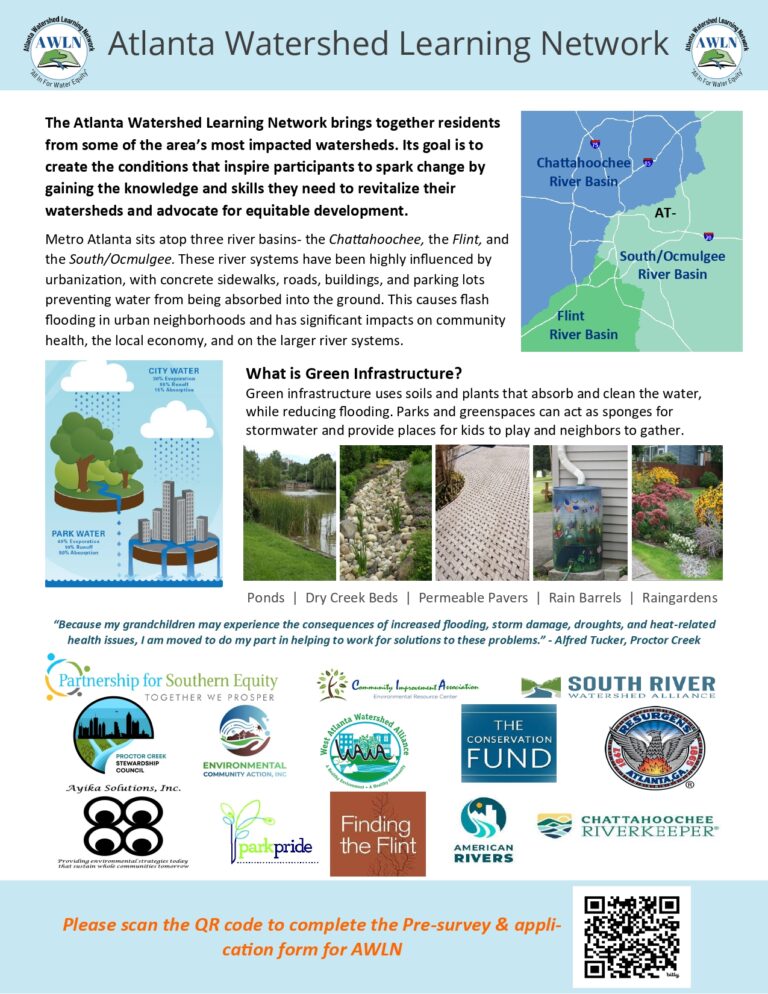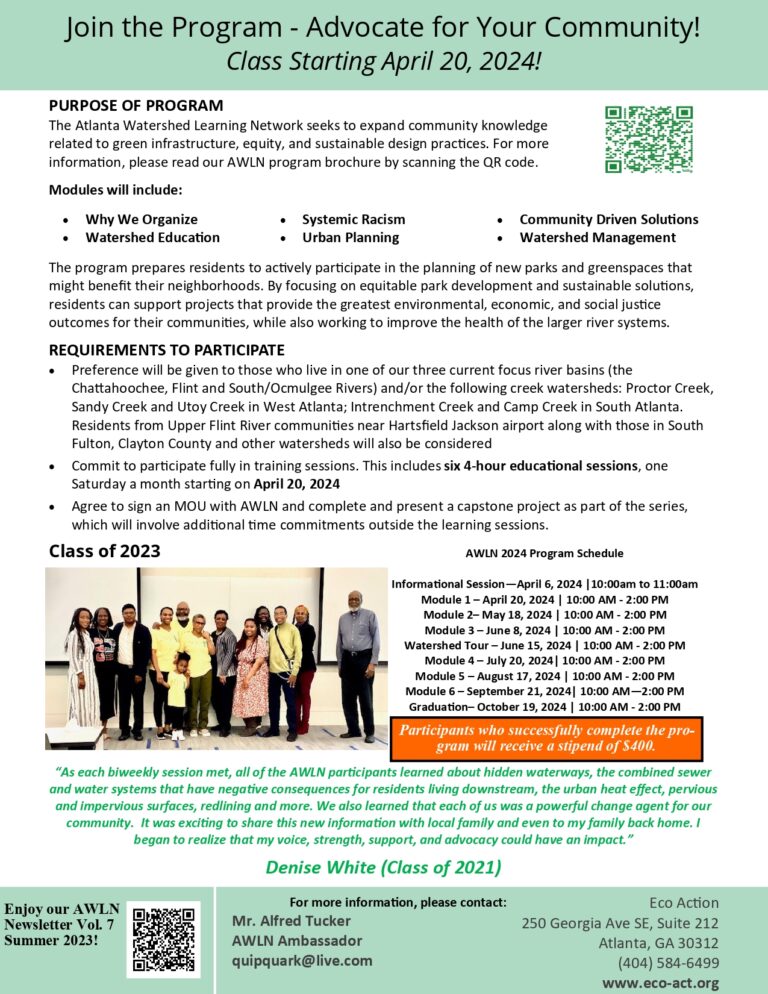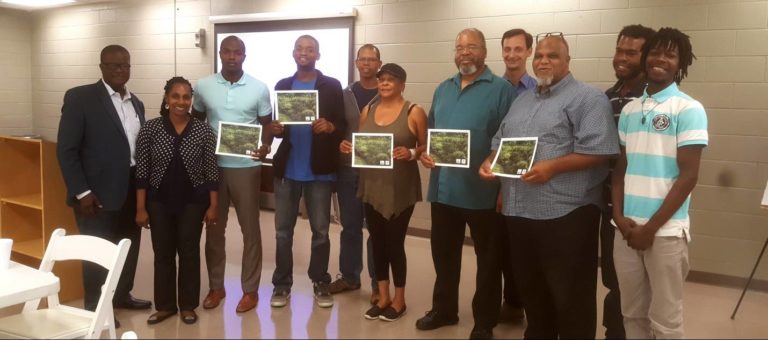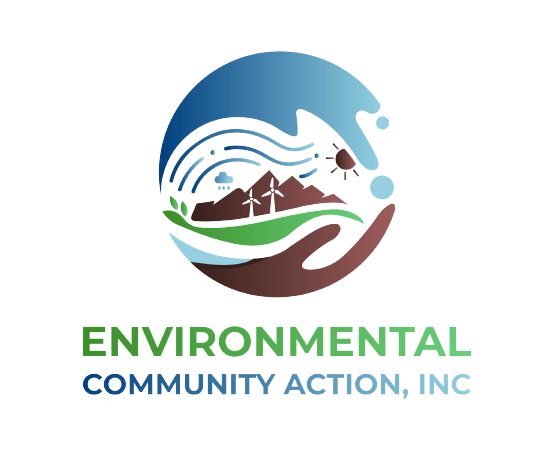The Atlanta Watershed Learning Network (AWLN) evolved from the Green Infrastructure (GI) Advocacy Training program piloted in 2016. AWLN brings together residents from some of Metro Atlanta’s most highly impacted watersheds and seeks to spark change by helping these residents gain the knowledge and skills needed to revitalize their watersheds and advocate for equitable development. Residents are prepared to support projects that provide the greatest environmental, economic, and social justice outcomes for their communities, while also working to improve the health of the larger river systems in the Metro Atlanta area.
AWLN provides training modules to help residents understand the causes of flash flooding in urban neighborhoods and what solutions they can use to improve their community health, the local economy, and larger river system. Program training modules include Why We Organize, Watershed Education, Systemic Racism, Urban Planning, Community Driven Solutions and Watershed Management.
AWLN 2024 Program Schedule
Informational Session—April 6, 2024, |10:00am to 11:00am
Module 1 – April 20, 2024, | 10:00 AM – 2:00 PM
Module 2– May 18, 2024, | 10:00 AM – 2:00 PM
Module 3 – June 8, 2024, | 10:00 AM – 2:00 PM
Watershed Tour – June 15, 2024, | 10:00 AM – 2:00 PM
Module 4 – July 20, 2024| 10:00 AM – 2:00 PM
Module 5 – August 17, 2024, | 10:00 AM – 2:00 PM
Module 6 – September 21, 2024| 10:00 AM—2:00 PM
Graduation– October 19, 2024, | 10:00 AM – 2:00 PM
Requirements to Participate:
Residents can sign up to participate by completing our Pre-survey and application form here.
Click here to enjoy our AWLN Newsletter, Vol. 7, Summer 2023!
For more information, please read our AWLN program brochure here.


In the spring of 2016, ECO-Action piloted Green Infrastructure Advocacy Training, a program for community outreach and engagement toward the development and use of parks and the application of green infrastructure (GI) to address stormwater issues in the Turner Field communities of Mechanicsville, Peoplestown and Summerhill
By training community members to be GI advocates, the pilot program increased community capacity for engagement with green infrastructure in parks as community assets that:

“If we don’t care and do not stand up for ourselves, why should we expect other people to care and standup with us?”
—Ms. Bernice Brown, Graduate of the Green Infrastructure Advocacy Training and lifelong resident of the Turner Field neighborhood of Peoplestown.
The initial project focused on the neighborhoods near Turner Field. An expanded version of the program Atlanta Watershed Learning Network evolved from this initiative. The Network partners residents of Intrenchment Creek with those of Proctor Creek to learn about their watersheds, collect samples for Citizen Science activities and advocate on behalf of watershed protection.
“After reviewing these results with residents, we at American Rivers considered how the benefits of green stormwater infrastructure (GSI) could address several of the community’s top priorities. So we offered to assist both the TFCBC and the LCI in crafting robust, yet realistic recommendations for the implementation of GSI for the redevelopment, as well as for the adjacent interstate highways—a major source of runoff.”

Copyright © 2024 ECO-Action. All Rights Reserved.